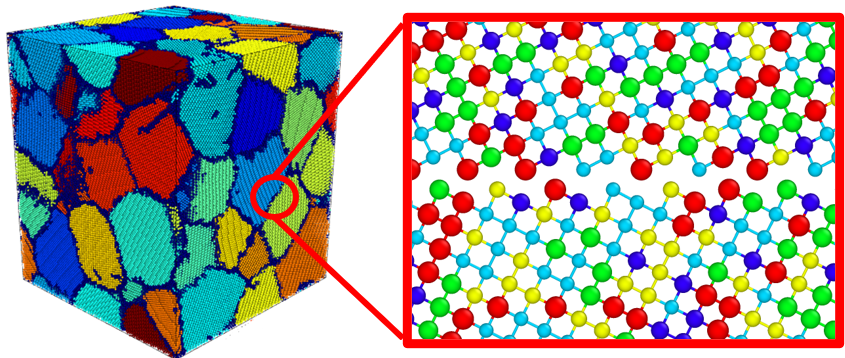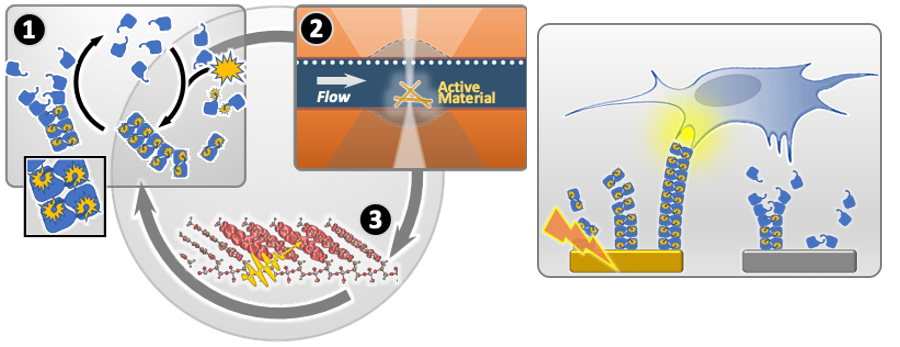Research
For facilities updates please visit:
Any Suggestions?
Write to us so we can better serve you and other IMRI users.
Research
Research activities are organized by the Center for Complex and Active Materials (CCAM), a newly funded NSF MRSEC.
IRG-1: Complex Concentrated Materials

IRG-1 will develop the fundamental science needed to understand, describe, and predict interfacial phenomena in metals and ceramics with multiple principal elements. These so-called complex concentrated materials have been reported to have outstanding properties such as high strength, tailored band gaps, extremely large dielectric constants, and substantially reduced thermal conductivity, making them the next paradigm shift in structural and functional materials. This IRG’s interdisciplinary team will be the first to develop the core principles of microstructural engineering for complex concentrated materials, including fundamental investigations of atomic-level structure and chemistry, interfacial thermodynamics, kinetics, and mechanical and functional properties. This foundational knowledge will then be used to design and synthesize materials with planned microstructures and properties. The team provides complementary expertise in materials theory, computational materials science, processing science, advanced characterization, property measurement, and artificial intelligence to enable a complete study of interfacial behavior in complex concentrated materials. This IRG is expected to transform complex concentrated materials from laboratory curiosities into materials that alter our global economy in a variety of essential industries.
IRG-2: Bioinspired Active Materials

This IRG will develop active conductive supramolecular materials that self-assemble in response to electronic and other stimuli. While a variety of stimuli—including chemical, light, and mechanical triggers—have been used to control synthetic supramolecular polymerization, the interactions between charge and synthetic self-assembled systems are poorly understood. This IRG will support an integrated team effort to investigate actively assembling materials inspired by biological systems to seamlessly interface biology and synthetic electronic devices. Research objectives will include (1) design and synthesis of novel active materials fueled by electrical and other energy, (2) integrated computational and experimental mechanistic investigations of active self-assembly systems, and (3) experimental and theoretical characterization of the emergent electronic and mechanical properties of the active supramolecular systems to inform iterative materials design. Building on this IRG’s strong and complementary expertise in materials design and synthesis, as well as experimental and computational studies, a highly interdisciplinary plan is proposed to gain fundamental understanding of charge-matter interactions in bioinspired supramolecular materials. This research will provide foundational knowledge in Synthetic Materials Biology for how to effectively interface living and nonliving matter for future technological development of artificial intelligence and bioelectronics.